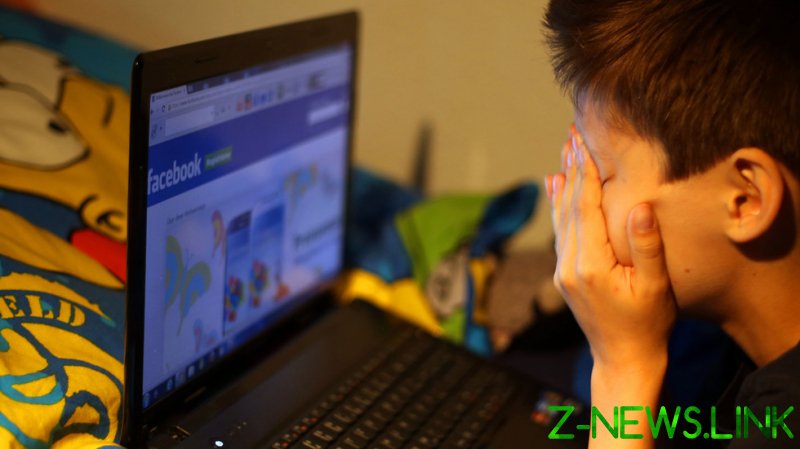
There are many things wrong with Facebook, especially the unaccountable control it exercises over today’s public square. But researching how to attract and capture tomorrow’s customers is not one of them.
This week’s big ‘revelation’ was that Facebook drew up plans to tap into children’s playdates. According to leaked internal documents revealed by the Wall Street Journal, it formed a special team to study the long-term business opportunities presented by young people, calling them a “valuable but untapped audience”. This research included how Facebook could appeal to audiences under 13, and even proposed tailoring some of its features to children aged four and below.
But those ‘revelations’ are hardly shocking – the modus operandi is so obvious. Since the emergence of capitalism, every successful consumer company operating in a competitive market has focused on kids as future consumers of their products, and Facebook is no exception. However, given that the success of apps such as TikTok and Snapchat has seen the number of teenagers who use the platform daily fall 19% in two years, and internal Facebook research suggests it could fall by a further 45% by 2023, it is a particularly pressing issue for Zuckerberg and co.
Kids are a valuable and untapped audience. And because they’re accessing the internet at an earlier and earlier age, Facebook rightly understands it cannot ignore this sector. As it correctly observes, it has a responsibility to figure it out. But this is complex and highly controversial territory. We’re talking about children – with all the risks and caveats this entails.
The complexity stems from the fact that young people’s interaction and use of digital technologies is not a simple question of consumer behaviour, of choice or safeguards against abuse – it’s also about how younger generations exist in and interact with the world. The dynamic that created the space for a platform such as Facebook to emerge had little to do with the emergence of digital technology to begin with. Changes in childhood over the decades before the technology existed – particularly the emergence of the risk culture whereby parents developed a greater concern about ‘stranger danger’ – saw young people adapt these technologies to solve their resultant social isolation from their peers. Digital technologies afforded them the freedom and space to escape the interminable worried gaze of adults.
The rise of bedroom culture as opposed to street culture, also encouraged by parents, meant that, for this generation and those that followed, life would be mediated by social media in ways few adults could comprehend or understand at the time. This was, and remains, the dynamic that underpins the emergence and expansion of social media, and thus companies such as Facebook.
Of course, the added and decisive complication of the rise of social media is that adulthood itself has been infantilised. Like their children, millions of adults now populate the same social media platforms and indulge in the same childish narcissism and self-obsession as their teen offspring.
This is the real, unacknowledged problem at the heart of the discussion about Facebook and children. The adults have left the room. The demand for safeguards and penalties to protect kids online represents the outsourcing of adult authority – the unbelievably irresponsible demand that a rapacious commercial company accountable only to its shareholders should play the role of parent.
But give them an inch, as they say, and they’ll take a mile – which is exactly what Facebook is doing. Even in the face of its internal research, its defence, which revealed that Instagram – which Facebook acquired in 2012 – appeared to be directly contributing to some teenagers’ concerns about their body image, is that social media can be good and evil. The fact that kids have used the technology to connect with their peers away from adults, entertain themselves, experiment with their identities, and even educate themselves has been fundamental to their development into adulthood, indeed, for their mental health, if you will. And not surprisingly, we see that most will lie about their age to access sites that exclude them.
Put up barriers, and they’ll find a way to get around them. This is the cat-and-mouse game of intergenerational interaction. But it revolves around that perennial aspiration of young people to be adults. This means that, no matter what Facebook or legislators do, they will find a way to circumvent it, especially if it gives them an edge.
The research that Facebook has been conducting reveals it at least understands the need to understand these dynamics better. What should set the alarm bells ringing is its stated objective of getting younger users to graduate from Instagram to Facebook as they age, pitching the latter as the “Life Coach for Adulting”.
The wake-up call for society is not what Facebook is aspiring to do; it’s the fact that, in the age of Big Tech, the adults – particularly politicians – have abrogated their responsibility for socialising and protecting young people. Facebook is simply the messenger. The message itself is a far bigger problem than the existence of a special research group within Facebook.
Like this story? Share it with a friend!
The statements, views and opinions expressed in this column are solely those of the author and do not necessarily represent those of RT.
© 2021, paradox. All rights reserved.





